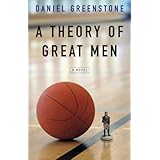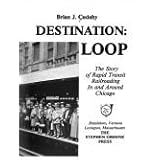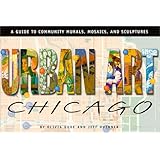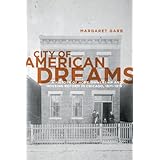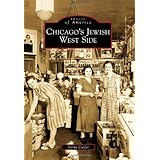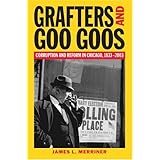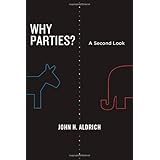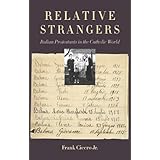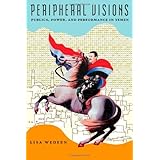
Average Reviews:

(More customer reviews)Are you looking to buy
Peripheral Visions: Publics, Power, and Performance in Yemen (Chicago Studies in Practices of Meaning)? Here is the right place to find the great deals. we can offer
discounts of up to 90% on
Peripheral Visions: Publics, Power, and Performance in Yemen (Chicago Studies in Practices of Meaning). Check out the link below:
>> Click Here to See Compare Prices and Get the Best Offers
Peripheral Visions: Publics, Power, and Performance in Yemen (Chicago Studies in Practices of Meaning) ReviewWhen we do democracy, we do it with a ballot. The United States has been shipping ballot boxes all over the known world for, conservatively, sixty years. The official line holds that, barring strategic exceptions, everybody across this wide globe benefits from the dignity proffered by suffrage, and furthermore, after ballots are counted, the food, water, electricity, education and piety will follow in a timely way. In Peripheral Visions, Lisa Wedeen complicates this vision of democracy by showing how voting only emerges as an appropriate and relevant aspect of human dignity given a constellation of other institutional, cultural, and discursive preconditions.
Peripheral Visions` contribution to the long conversation of political science flows from a careful study of Yemeni democratic practices. Yemen's academic import stems from its situation as a weak state, a vague nation summoned into being, as a nation, on the strength of a series of ethnic poems and intermittent profusions of oil money. To be sure, a fledgling nation could do worse than being held together by a song and a well, but the situation remains that the duties commonly ascribed to government--'enforcing contracts, keeping the peace, and deliberating public affairs--'are taken up and executed with mixed success not by the duly elected officials, but by a well-armed populus, such that performing dry procedurals like casting a ballot seems only tangentially tied, late and perfunctory, to the quality of practices of the Yemeni citizen's day-to-day life.
"Regimes that do not fulfill the conditions of a "minimal state"(Nozick 1974) by exercising enough control over violence that citizens feel protected "whether they like it or not" (Gambetta 1993, 7) may end up being more "democratic"'more encouraging of civic associations, vibrant political debate, and substantive thinking about politics'than regimes with efficacious state institutions and/or passionate attachments to a nation."
Wedeen begins her treatment of Yemen by setting out a recipe for cooking up a nation from hazily defined mixed parts. "Yemen" is comprised of overlaying loyalties, a malleable "tribal" system, opposing conceptions of piety, transnational economic entanglements and local concerns, none of which are fixed such that, "What makes a Yemeni a Yemeni?" is a live question, and one Wedeen addresses as a "vehicle for exploring the dynamics of political identification in general." In her recipe for nationalism, she borrows and critiques Benedict Anderson's view of how a national press motivates a sense of nationhood, the newspaper affirms a sense of solidarity by placing on one paper the events of disparate cities; in addition, Wedeen gestures towards Moishe Postone's work on how a standardized conception of time, a time emancipated from the occurrence of one's particular event, can serve as a tableau for a broad sense of simultaneity amongst multiple events.
Once the ingredients are gathered, Wedeen plunges into a brief and spirited history of the phenomenon of Yemen in order to flesh out her stronger theory-based conjectures. For example, Wedeen argues that the nascent country's nakedly corrupt election in 1999 by `Ali `Abd Allah Salih contributed to a sense of nationality by investing the new nation in the process, then showing how convincingly the process could be subverted by a partisan regime. Promoting nationalism through corrupt elections seems counter-intuitive, unless one is from Chicago, a city as proud of its architecture as it is of its indefatigably corrupt political machinery. Nothing so binds a people together than the feeling that they have been/are being summarily hosed, as one people, by a regime. Wedeen also talks of the weak state's inability to apprehend a serial killer as a matter of nation building, again, as the people deliberated publicly on the failure of the state to execute its duties, the people were speaking the voice of disaffected Yemenies, but Yemenies all the same.
Wedeen spends her most courageous chapter portraying a vibrant expression of civic culture, dialogue and deliberation organized around qat chewing. Qat, a mild stimulant whose pharmaceutical qualities seem closer to coffee or cigarettes than to methapmetamine, provides a political site for debate. Group qat chews are performed with varying levels of formality, but the talking points enumerated in these qat chews find their way into popular media and public policy. The efficacy of performing well in a qat chew opens up a viable issue for democratic theorists, which is, if Yemen is a democracy, affording power and dignity to citizens by virtue of their performance of public acts, and the most meaningful act these citizens perform, within the organization of their civic institutions, is speaking eloquently at a qat chew rather than voting, then Wedeen is providing a clarion call for all theorists who set democracy equal to elections because her depiction of Yemen's vibrant civic culture portrays a nation that is democratic in spite of their electoral system, not because of it. "In short, democrats can exist without procedural democracy. Democracy (in substantive representational terms) may not even need a ballot box."
Wedeen then ends her treatment of Yemen with a discussion of such ticklish terms as "tribalism," "nationalism," and "piety" with the take home lesson being that before we pronounce any one polity a democracy, one must appreciate the interrelation of particular civic practices and not unduly import standards, such as the existence of a ballot, as both necessary and sufficient for the existence of democracy. When Americans do democracy, we do it with a ballot. The practice and discourse surrounding voting forms and affirms our conception of democratic public life, but Wedeen's exploration of Yemen's civic ethic opens up the possibility that other organized sets of practices can gestalt into an equally vibrant, responsive, and dignified public culture, and if such cultures are not designated properly democratic, it is because of the narrowly impoverished democratic discourse rampant in modern minimalist democratic theory, rather than a manifest poverty of civic performance on the part of these otherly political, vibrant, and engaged citizens.
Peripheral Visions: Publics, Power, and Performance in Yemen (Chicago Studies in Practices of Meaning) OverviewWant to learn more information about
Peripheral Visions: Publics, Power, and Performance in Yemen (Chicago Studies in Practices of Meaning)?
>> Click Here to See All Customer Reviews & Ratings Now